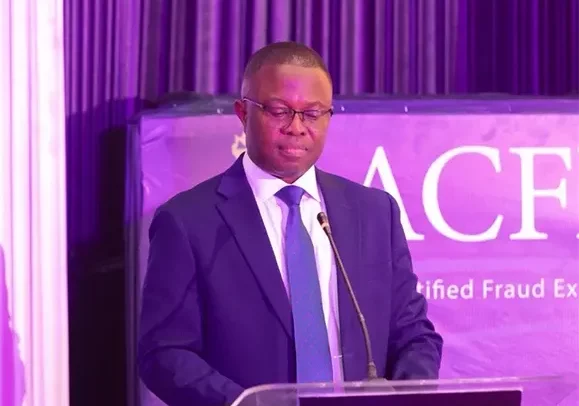Atta Yeboah Gyan
Fidelity Bank Ghana has challenged corporate Ghana to radically redefine its approach to governance.
Deputy Managing Director for Operations and Support Functions, Atta Yeboah Gyan, disclosed this at the 3rd Ghana Association of Certified Fraud Examiners (ACFE) National Conference in Accra.
According to him, in an era where public confidence is increasingly fragile, “trust has become the new currency of leadership,” and the fight against fraud must move beyond mere compliance checklists to a culture of lived integrity.
Speaking to the theme, “The Role of Corporate Executives in Promoting Ethical Leadership and Accountability in Ghana,” Mr. Gyan positioned ethical leadership not merely as a moral obligation, but as a critical economic survival strategy for Ghanaian institutions.
He diagnosed a critical vulnerability in the corporate landscape namely the gap between written policy and actual behavior. He argued that while Ghana has seen commendable advances in digitisation and regulatory frameworks, these tools remain insufficient without the “human element” of steadfast leadership.
“Corporate executives are the custodians of ethical culture within their organisations,” Mr. Gyan stated. “We set the ‘tone at the top,’ and that tone determines whether integrity becomes a lived value or a mere slogan. When leaders compromise ethics for short-term gain, they send a signal that values are negotiable. And once values become negotiable, integrity becomes optional and that is when fraud thrives.”
He emphasised that a leader’s greatest contribution to the fight against fraud is “not the policies we write, but the examples we set,” urging executives to make decisions based on principle rather than convenience.
Mr. Gyan further outlined the stark economic reality of ethical failure. He noted that fraud and corruption do more than just drain resources; they distort fair competition and weaken the institutional fabric necessary for attracting investment.
“The question, therefore, is not whether ethical leadership is expensive, but whether we can afford the cost of its absence,” he remarked. “When leaders compromise principles, organisations lose credibility, employees lose motivation, investors lose confidence, and customers lose trust. Rebuilding that trust can take years, sometimes decades.”
Conversely, he highlighted that ethical practices act as a strategic differentiator, enhancing brand loyalty among socially conscious consumers and positioning institutions to navigate complex regulatory landscapes with agility.
Calling for a systemic shift in how Ghanaian organisations manage ethics, he said ethics must be institutionalised, while also governance structures should make “wrongdoing difficult and transparency natural.”
He championed the protection of whistleblowers and the active rewarding of integrity, rather than just the punishment of vice.
“Technology and regulation alone cannot win the fight against unethical conduct,” Mr. Gyan concluded, reflecting on the bank’s own journey of strengthening internal controls and culture. “That victory belongs to people; leaders who choose integrity over convenience every single day,” he added.
By Samuel Boadi


